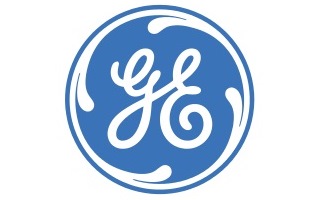The Best Conglomerate for the Rest of 2014
February 27, 2014 by Jon C. Ogg
News was on the tape that General Electric Co. (NYSE: GE) has been settling charges and working on unit consolidation, including the ongoing spin-off of GE’s consumer finance unit. 3M Co. (NYSE: MMM) is also reportedly looking to unload part of its electronics business via a sale. United Technologies Corp. (NYSE: UTX) has not had much news to chew on, but Warren Buffett is soon to announce results for Berkshire Hathaway Inc. (NYSE: BRK-B).
So, which conglomerate has the best value? It turns out that this depends on what metric you like to evaluate. Not all conglomerates are created equally.
General Electric Co. (NYSE: GE) is still evaluated as half-bank and half-conglomerate, but the IPO/spin-off of the US consumer finance unit will begin to change that. GE has a 1.94 to 1 price to book ratio. Its market cap is $257.65 billion, and next year’s P/E ratio is 14.5. With a consensus target price of $28.92, GE has an implied upside of about 14% based upon its $25.50 share price. Keep in mind that GE’s 52-week high is $28.09, and it leads conglomerates in payouts with a 3.5% yield.
3M Co. (NYSE: MMM) has a much higher price to book value of about 5-times, but 3M just recent became a direct competitor for investor money against GE when it boosted the dividend. 3M’s market cap is $89.11 billion and its forward P/E ratio is about 16.5. With a gain of 1.25% to $134.50 on late-Thursday trading, the consensus target price of $141.75 generates an implied upside of close to 5%. 3M’s yield is 2.6% and its 52-week high is $140.43.
United Technologies Corp. (NYSE: UTX) trades at 3.3-times book value and comes with a $106 billion market cap. Its forward P/E ratio is 15.5, but its dividend yield is down at 2% or so. With a consensus target price of $125.00, United Tech has an implied upside of just over 7%. After marginal gains on Thursday to $116.30, the all-time and 52-week high is only up at $118.20.
Berkshire Hathaway Inc. (NYSE: BRK-A) trades at what screens to be 1.34-times book value, although we are just about to get an amended book value here in a day. What was amazing is that the public equity holdings recently went well above $100 billion for the first time. Berkshire’s market cap is $282.35 billion, yet analysts hardly make projections so we won’t opine on its P/E ratio. Team Buffett’s 52-week trading range is $150,800 to $178,900 and the $171,350 price is likely in limbo until that annual report is released on Saturday morning. Warren Buffett still pays holders no dividend.
So, where does this leave the best value for conglomerates in 2014 now that most earnings are out? By our take, General Electric remains the conglomerate with the most upside potential for 2014. The driving forces for this decision:
- Solid upside of 14% if analyst consensus is hit.
- We gave a “how to get GE to $30” in late 2014, that has not changed.
- Best dividend yield at close to 3.5%.
- Continued share buyback possibilities.
- Strong industrial trends — aircraft and infrastructure, plus Oil & Gas.
- Divesting of finance unit will reclassify it as an industrial conglomerate — possibly with 10% or 15% valuation boost just from that.
- Likely no major acquisitions — only bolt on deals.
There are still 10 months left until the end of 2014, so stay tuned to see if GE lives up to be the best conglomerate for 2014.
Essential Tips for Investing: Sponsored
A financial advisor can help you understand the advantages and disadvantages of investment properties. Finding a qualified financial advisor doesn’t have to be hard. SmartAsset’s free tool matches you with up to three financial advisors who serve your area, and you can interview your advisor matches at no cost to decide which one is right for you. If you’re ready to find an advisor who can help you achieve your financial goals, get started now.
Investing in real estate can diversify your portfolio. But expanding your horizons may add additional costs. If you’re an investor looking to minimize expenses, consider checking out online brokerages. They often offer low investment fees, helping you maximize your profit.